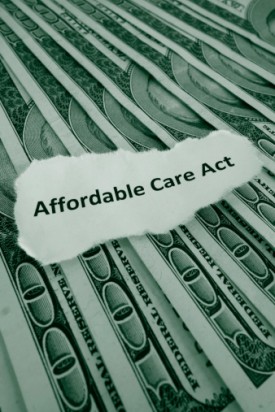Medicaid Providers Struggling to Raise Reimbursement Rates

- Medicaid providers seeking to raise their reimbursement rates by suing the government are essentially out of luck, according to documentation within a recent Supreme Court ruling.

“The notion that respondents have a right to sue,” says Justice Antonin Scalia writing on behalf of the majority within the ruling’s documentation, "derives, perhaps, from the fact that they are beneficiaries of the federal-state Medicaid agreement and that intended beneficiaries, in modern times at least, can sue to enforce the obligations of private contracting parties.”
Scalia additionally maintains the Medicaid Act does not allow private parties to enforce a section of law requiring states to assure payments are consistent with overall efficiency, the economy, and mainstream quality of care. Scalia says the Department of Health and Human Services (HHS) maintains the ability to cut federal Medicaid funds to a state if it is determined the rates paid are inadequate.
Healthcare providers express views that Medicaid reimbursement rates are unlawfully low. Opinions are varied regarding the aftermath of the Armstrong v. Exceptional Child Center, Inc. 5-4 decision that neither the Constitution nor federal law authorizes healthcare providers and physicians to challenge reimbursement rates. The decision confirms Medicaid providers lack private cause of action to sue government officials for higher rates of Medicaid reimbursement.
Says Dan Ehlke, PhD, Assistant Professor of Health Policy and Management at SUNY-Downstate Medical Center School of Public Health, “This decision further reinforces a long-running trend toward ever-lower Medicaid reimbursement that, at some point, will reach a level that is untenable.”
Additional concerns arise regarding how upcoming legislative decisions will specifically impact states that have not yet participated in Medicaid expansion coverage with the option to do so under the Affordable Care Act (ACA).
“[The decision] could lead a few governors currently on the fence to open the door to a Medicaid expansion, given the green light to low reimbursement rates,” says Ehlke, adding some state policymakers may make an oppositional decision based on the expansion failing to result in a tangible difference regarding practicality measures.
Says David Howard, PhD, Professor of Health Policy and Management at the Rollins School of Public Health at Emory University, “States will continue to squeeze provider reimbursements. The Department of Health and Human Services [HHS] will have to fulfill its obligation to ensure that Medicaid beneficiaries have adequate access to care.”
Howard also expressed concern that the court is not an ideal avenue for addressing the complexity surrounding Medicaid reimbursement concerns.
Says Michael Morrisey, PhD, Professor of Health Policy and Management at Texas A&M University, “Providers can enter into contracts with Medicaid that include payment rates. To the extent that those payments don’t cover at least marginal costs, providers choose not to participate [under current rates].”
Morrisey adds the majority of providers perceiving rates of being inadequate have likely already minimized their Medicaid exposure.
The ruling may be considered a stinging slap in the face to physicians, hospitals, and healthcare professionals who express collective concerns of an ongoing tangible loss of revenue. Past lawsuits attempted to force Medicaid agencies to raise rates to ensure the delivery of accessible quality care.
“The Supreme Court ruling means physicians and families will have to turn to the U.S. Department of Health and Human Services (HHS) to fight low reimbursement rates instead of the courts. HHS can withhold Medicaid funds from states that are not in compliance with the federal law,” confirms the American Academy of Pediatrics (AAP).
There is a possibility providers will attempt to sue state Medicaid agencies, says Jane Perkins, Legal Director of the National Health Law Program. Such strategies, such as alleging agencies violated procedural laws or claiming capriciously executed acts, are difficult to present, Perkins maintains.
“The avenue for judicial relief has certainly been shut down in a serious way,” states Perkins.
Healthcare providers continue to push for what they consider fair reimbursement rates as the ACA fosters the continuous expansion of Medicaid beneficiaries and the demand for value-based care increases.
